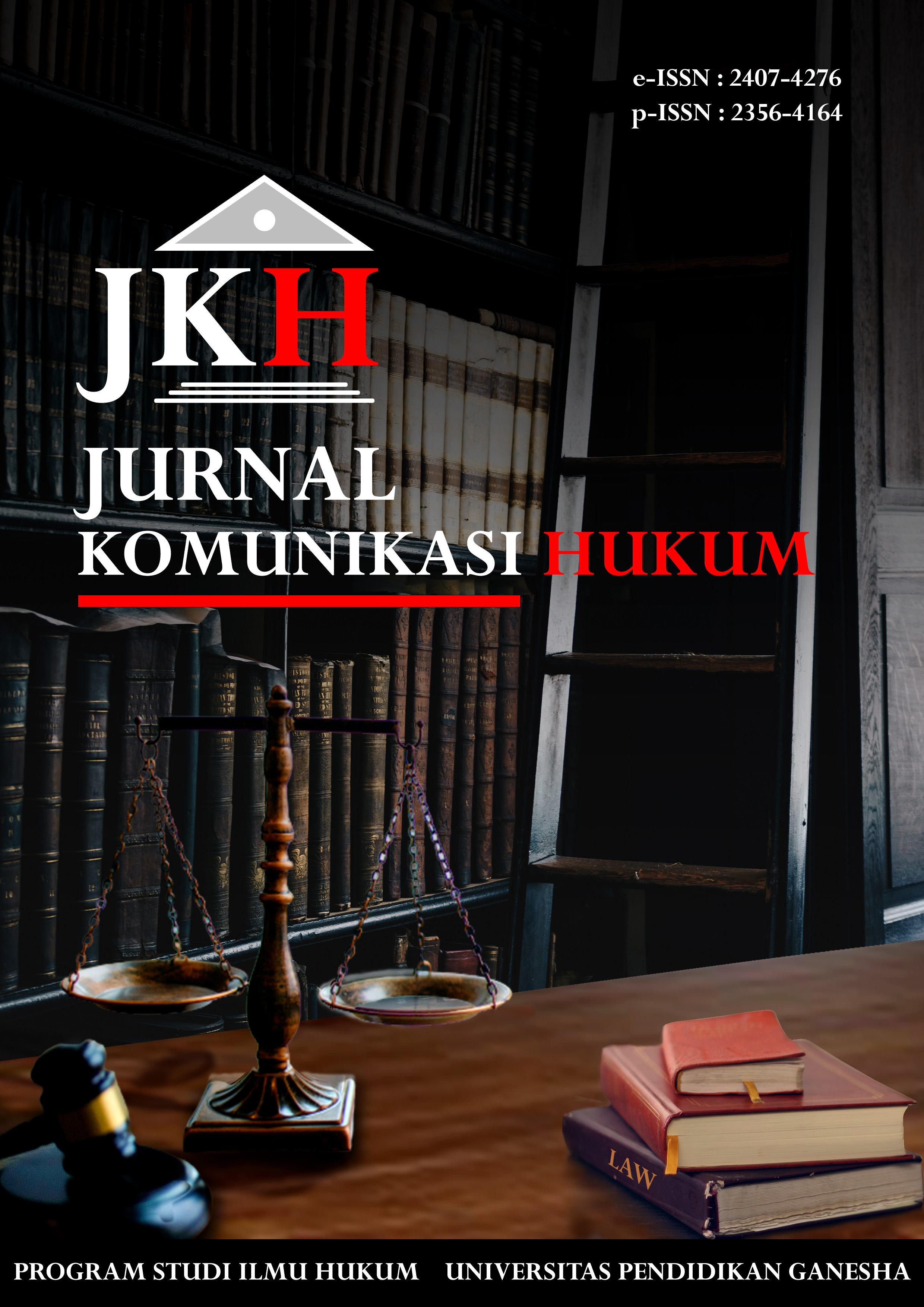Subsidies and Countervailing Measures: Challenges in International Trade Law
DOI:
https://doi.org/10.23887/jkh.v7i1.31454Keywords:
Regulation International Trade, Subsidies, Countervailing Measures, GATT 1994, The SCM AgreementAbstract
In the global era with all demands and expectations for a better economic condition in a country that an international trade is needed. Fair competition can be carried out in competition between business actors and commodity (goods or services) in overseas with business actors and commodity (goods or services) in country. One form of creating justice in international trade competition is by providing subsidies. The issue of subsidies created the problems and disputes. The problem formulations of this research were: (1) how are the effects of subsidies and countervailing in international trade regulations? (2) how is the case analysis related to subsidies and countervailing measures according to the provisions of the GATT 1994, The SCM Agreement and other legal provisions? The results showed that (1) the effect of subsidies and countervailing measures based on their types (red light, yellow light, green light) in international trade regulations had provided clear provisions as well as the impact and limitations in implementing these provisions in accordance with the provisions. GATT 1994 and The SCM Agreement. (2) The several cases described regarding subsidies that were not allowed because they created injustice that the subsidies were only carried out in an emergency situation and their nature rescued them from an economic crisis.
Downloads
Published
How to Cite
Issue
Section
License
Authors who publish with this journal agree to the following terms:- Authors retain copyright and grant the journal right of first publication with the work simultaneously licensed under a Creative Commons Attribution License that allows others to share the work with an acknowledgement of the work's authorship and initial publication in this journal.
- Authors are able to enter into separate, additional contractual arrangements for the non-exclusive distribution of the journal's published version of the work (e.g., post it to an institutional repository or publish it in a book), with an acknowledgement of its initial publication in this journal.
- Authors are permitted and encouraged to post their work online (e.g., in institutional repositories or on their website) prior to and during the submission process, as it can lead to productive exchanges, as well as earlier and greater citation of published work (See The Effect of Open Access).
Authors who publish with this journal agree to the following terms:
- Authors retain copyright and grant the journal right of first publication, with the work [SPECIFY PERIOD OF TIME] after publication simultaneously licensed under aCreative Commons Attribution License that allows others to share the work with an acknowledgement of the work's authorship and initial publication in this journal.
- Authors are able to enter into separate, additional contractual arrangements for the non-exclusive distribution of the journal's published version of the work (e.g., post it to an institutional repository or publish it in a book), with an acknowledgement of its initial publication in this journal.
- Authors are permitted and encouraged to post their work online (e.g., in institutional repositories or on their website) prior to and during the submission process, as it can lead to productive exchanges, as well as earlier and greater citation of published work (See The Effect of Open Access).












